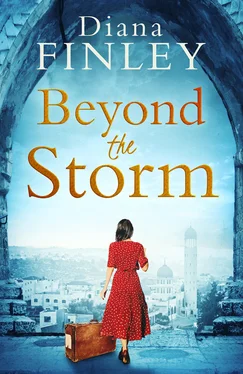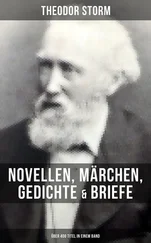‘If only we could go to Berlin together , Sam. Surely you could put in a request, in the circumstances? Why do we have to be apart, now of all times?’ She strokes the solid curve of her belly. Even as she says it, Anna has doubts. Could she really live in Germany? It’s a ridiculous, horrible idea. Yet, how could she possibly not live wherever Sam is?
Ten days later, Sam goes ahead with the first waves of Allied troops to Berlin. Over the coming months he sends Anna long accounts of the devastation and hardship he encounters there:
… the scene greeting us was one of utter desolation and despair. Berlin is totally destroyed. I know you feel little sympathy for the Germans, and why should you? Yet one cannot help but feel compassion for these people, most of them innocent civilians – victims of the war and of their own regime. Some live in the remains of their ruined homes, without doors or windows, often without complete walls. Others simply live on the street. There is no fuel, almost no food, and no security. Our Russian allies behaved abominably – like Mongol invaders in fact. Women of all ages have been abused and humiliated, and often their only means of support now is to sell themselves to their very abusers, in exchange for scraps of food. Young children forage like rats in the ruins and fight over any filthy crusts they may find. Old people are abandoned and left to die. It breaks my heart – but one can’t dwell on the individual tragedies. There is so much to do to get systems up and working again: water and food supplies, shelter, transport, education, and on and on …
Anna, in England, is left to the mercies of Sam’s family, who offer her refuge dutifully, if perhaps reluctantly. Humphrey is all right. Tall and stooped like a much older man, despite being younger than Sam, Humphrey can be affectionate and funny. His blue eyes sparkle and his lips twitch when he makes some pointed comment and waits for a reaction. Anna does not always understand his humour; she supposes it to be of a very English, dry and ironic variety. She likes Humphrey and, though never completely sure of him, she believes he likes her.
Constance, on the other hand, is prickly and easily offended. Anna does not know exactly why Constance seems to find her so threatening; perhaps it is the child she is expecting? Yet Constance has three beautiful daughters of her own. At ten and eight, the older two are away in a boarding school, only seeing their parents for occasional weekends and in the holidays. It seems a horrible practice to Anna. Why have children, only to send them away? The youngest daughter, a little girl of three, is largely in the care of a nanny, known in the family as Nanny Lawrence. The child is brought into the drawing room after tea, prettily dressed, to be admired and caressed briefly and then returned to the nursery. Looking at the little girl, Anna is reminded of Rachel and their times together in Haifa, her lap a void longing to be filled. After a while, little Camilla learns to come to her for hugs and silly games, until Anna is scolded by Nanny Lawrence for spoiling the child.
She tries hard to understand Constance, to learn her expectations and fulfil them. Certainly, Constance does not consider it her role to bridge the cultural gulf between them. As Sam’s wife, it is for Anna to adjust to her new situation, to learn the rules. Constance sees herself as keeper of Humphrey’s reputation as a respected GP. She is ever alert to any threat to his position in the community. Anna knows that despite nearly two months of guidance and schooling in social etiquette, Constance finds her a frustratingly slow pupil. How strange it is, this English world of respectability and suppressed outrage.
In Humphrey and Constance’s library Anna finds a copy of Alice in Wonderland . She thinks as a children’s story it will be simple and may help her with colloquial English. The language turns out to be far from simple, yet it fascinates Anna, parodying as it does this very world of saying one thing and meaning something quite different. As she soon learns, Constance is an expert in this field. When by chance they meet a neighbour or acquaintance in the street or in a shop, Constance seems so delighted to see her, so warm and friendly. She admires her outfit, enquires after the health of the husband, enthuses over the achievements of the children. Yet, a few moments later, when they go their separate ways, Constance begins a terrifying assassination. She ‘wouldn’t be seen dead in that suit’; the husband is definitely not ‘top-drawer’ (Anna has to ask Constance to explain these expressions); the children are ill-mannered and dull.
Anna is well aware that she makes Constance anxious, afraid that Humphrey may be shown up by his brother’s strange foreign wife and her unpredictable ways. Anna does not believe Constance dislikes her. In her way, she seems quite fond of Anna, but it is the uneasy affection one might have for a half-trained dog, which though appealing, could at any moment slip its collar and run riot.
Constance and Humphrey continue to entertain whenever they can – ‘after a fashion’ as Constance puts it. Small dinner parties are a regular occurrence at the Lawrence household.
‘It’s important to try to uphold our pre-war standards,’ Constance maintains to Anna as they prepare for one such evening.
Charles and Susan Jennings settle themselves at the table. Anna has met Susan before; Constance had taken her to a ‘coffee morning’ at the Jennings’ house the previous week, where cups of weak coffee had been served, bitter with chicory. Susan is a blonde, middle-aged woman with a pale, washed-out complexion. She has a habit of shaking with little spasms of giggling whenever she makes a contribution to the conversation.
Her husband Charles is Humphrey’s senior partner – a large, noisy, red-faced man. He sits on Anna’s right. As usual, Constance insists on placing Anna at her right-hand side. Anna is aware that this is not to favour her; it is not intended as an honour. On the contrary, Constance feels the need to keep a sharp eye on her, perhaps give her a meaningful prod or surreptitious kick under the table, or whisper advice under her breath. When Anna absently strokes the growing sphere of her belly, Constance indicates her disapproval with an audible exhalation through clenched teeth, accompanied by a hard stare.
Everyone’s attention is on Humphrey, carving a scrawny chicken bestowed on him by a grateful patient. Little gifts like this are not infrequent and are an important supplement to the rations. Charles Jennings leans close to Anna, speaking softly in her ear in a manner both confidential and flirtatious.
‘You look most charming, my dear. Splendid dress. Brightens up this drab weather no end. Just what we all need.’
Anna smiles at his looming face, suddenly uncertain how to respond. She glances round at Constance, who purses her lips and gazes about the table. Is this another of the sarcastic and indirect remarks she finds so confusing? Suddenly she feels that her red dress – so painstakingly sewn on Yael’s machine from a pair of cotton curtains in preparation for her pregnancy – stands out vividly and inappropriately. It is also more suited to the Palestinian climate. She rubs her bare arms. Since arriving in England Anna has suffered constantly from the cold, not so much outside – Sam’s mother has given her a thick woollen coat of her own, and one can put on several layers – but in the damp, unheated houses.
‘Honestly, I don’t know how you two manage it,’ Susan says, with a giggle. ‘Even in these hard times you always put on a splendid table, with everything so smart and spick and span!’
‘Spick and span, eh? I nearly had to come to the dinner table unshaven tonight!’ Humphrey is passing plates to his guests, each with a tiny portion of carved chicken. ‘Not a drop of hot water left.’ Humphrey smiles at Anna in a knowing manner, like a kindly schoolteacher who has caught out a favourite pupil in an unexpected misdemeanour.
Читать дальше












